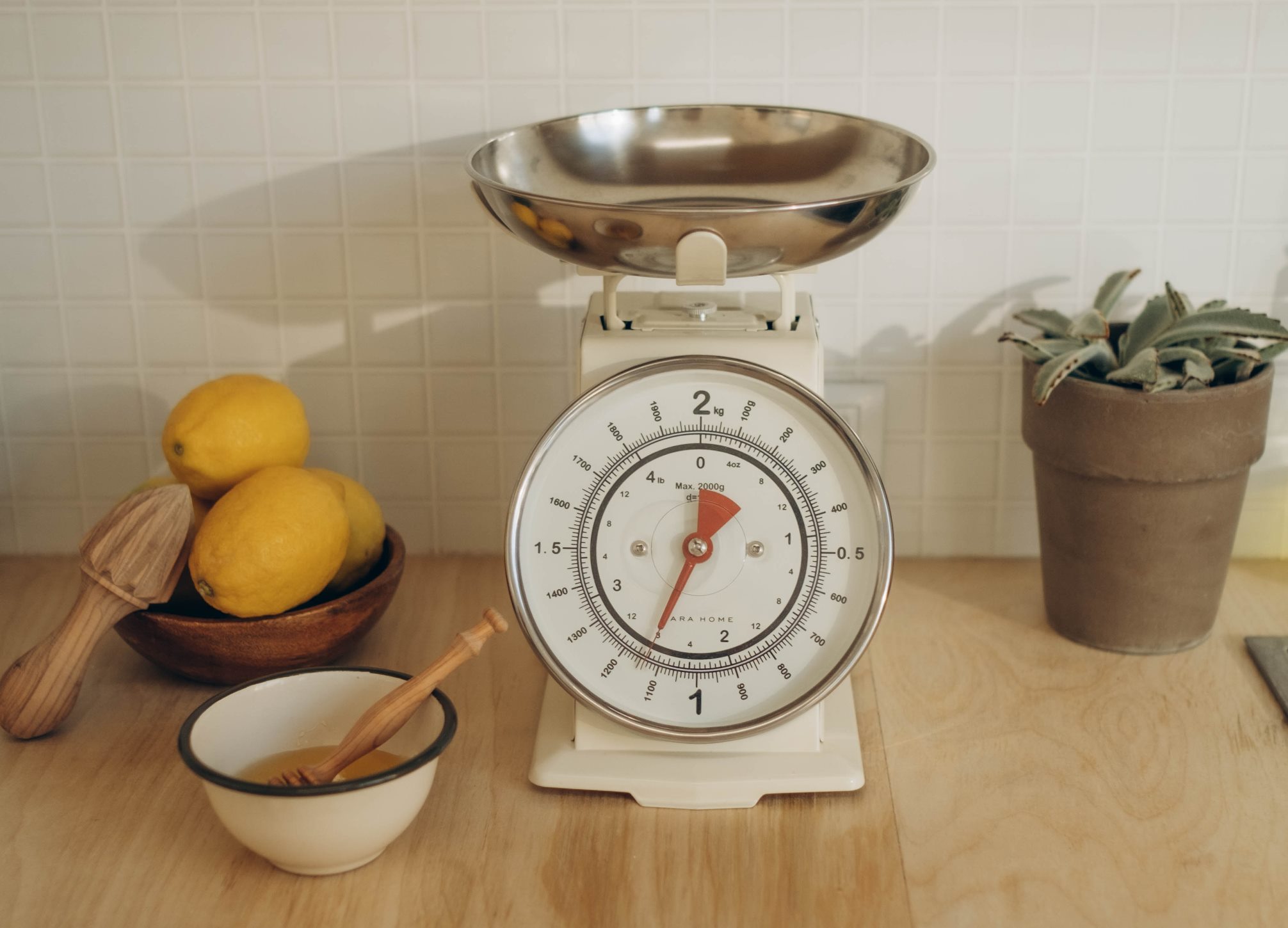When it comes to taking control of your nutrition, many people overlook food measuring. These people tend to believe that they have a balanced diet because they eat healthy food, indulge in junk food occasionally, and get some sort of movement in on the regular.
These same people also complain that they’re not seeing results. Why is that?
The short answer is this: if you’re not measuring what you eat, you’re likely not meeting your caloric requirements and goals, and you’re not meeting your macro goals.
In this post, we’ll talk about why it’s important to measure what you eat and share some tools to help you get started.
Who should be measuring their food intake?
Personally, I believe that everyone should measure what they eat! It gives you a better idea of what you’re consuming and how much. That said, if any of the following apply to you then you should be measuring your food intake:
- You’re actively trying to lose weight.
- You play sports.
- You’re actively trying to gain weight.
- You go to the gym.
- You’re a powerlifter or are strength training.
- You’re trying to improve your eating habits.
Why should you measure what you eat?
Measuring food is crucial for anyone that wants to improve their nutrition and eating habits.
“What gets measured gets improved.”
Peter Drucker
Here are some of the main reasons why:
Reason #1: It helps you better understand your current diet
When you start measuring food, you quickly learn how many calories you’re actually eating in a day and what your macros look like. If you haven’t done this before, you might be surprised to find that you eat more or less than what you think you do. As an example, you might be eating a salad thinking it’s a healthy food choice. But most salad dressings are incredibly calorie-dense and easy to overuse.
Once you develop a better understanding of your current diet and eating habits, you can take the first step toward improving your nutrition. Numerous studies have shown that people who measure their food intake are more successful in reaching their goal weight.
Reason #2: It helps you meet your caloric goals
Once you find out what your current diet looks like, you can actively take steps to meet your caloric goals and improve your nutrition. Let’s look at an example:
You might find that you consume 2,500 calories each day, most of which are carbs. If your goal is to lose weight, you can drop your calories to 2,300 and balance your macros better e.g. by increasing the protein and dropping carbs.
Now let’s say you want to gain weight. If you’re consuming 2,000 calories each day and you haven’t been gaining weight, you simply need to increase it to 2,400 calories with balanced macros to start gaining weight. By measuring what you eat, you can gain weight without putting on too much fat – the secret is in balancing out the macros and making sure you’re getting some activity in regularly.
Reason #3: It helps you improve your macros
Whether you’re trying to lose weight or gain weight, you need to pay attention to your macros. For those unfamiliar, macros are the carbohydrates, proteins, and fats you consume.
Foods like rotis, sugar, legumes (daals), fruits, and vegetables contain mostly carbs. Meat is mostly protein. And butter, ghee, oils, nuts, and seeds are mostly fats. (This is also a good place to mention that fats don’t make you fat, carbs do!).
Once you start measuring what you eat, you can see a breakdown of how much of it is carbs, how much is protein, and how much are fats. Then, you can match that against what you should be consuming and modify your diet to meet your macro goals.
Reason #4: It helps you make healthier eating choices
When you measure what you eat, you can plan your meals better and make healthier eating choices. For instance, if you’re out with friends, you might pick the steak option over pasta if you’re trying to increase your protein intake and control carbs.
Or if you’re planning a meal for your family, you’ll know exactly what goes into creating a balanced meal that has some protein, carbs, and healthy fats.
Does measuring food actually work?
Yes! If you measure your food and keep track of your calories and macros, you’ll meet your goals. The important thing is to do it every single day.
Of course, this doesn’t mean you can’t indulge in desserts or the occasional soda. In fact, it’s quite the opposite. Once you develop an understanding of what you should be eating, you can pick the foods you want to eat and modify them to meet your dietary requirements.
For instance, if you enjoy having Samyang noodles on Saturday nights, throw some chicken and a boiled egg on top to add protein to your meal. And, boom – you have guilt-free ramen!
Tools to measure what you eat
I’ve been using MyFitnessPal for a few years now and it’s my top recommendation for anyone that wants to start measuring their food intake and track their calories and macros.

MyFitnessPal is a free app and I’ve had great success with it both for losing weight and gaining weight. It’s incredibly easy to set up and get started with.
The MyFitnessPal app is available for both iOS and Android devices.
Other apps that you can use to measure what you eat: Lifesum, Nutritionix, and Cronometer.
Do you have any questions about why you should measure what you eat? Let us know in the comments section below.
